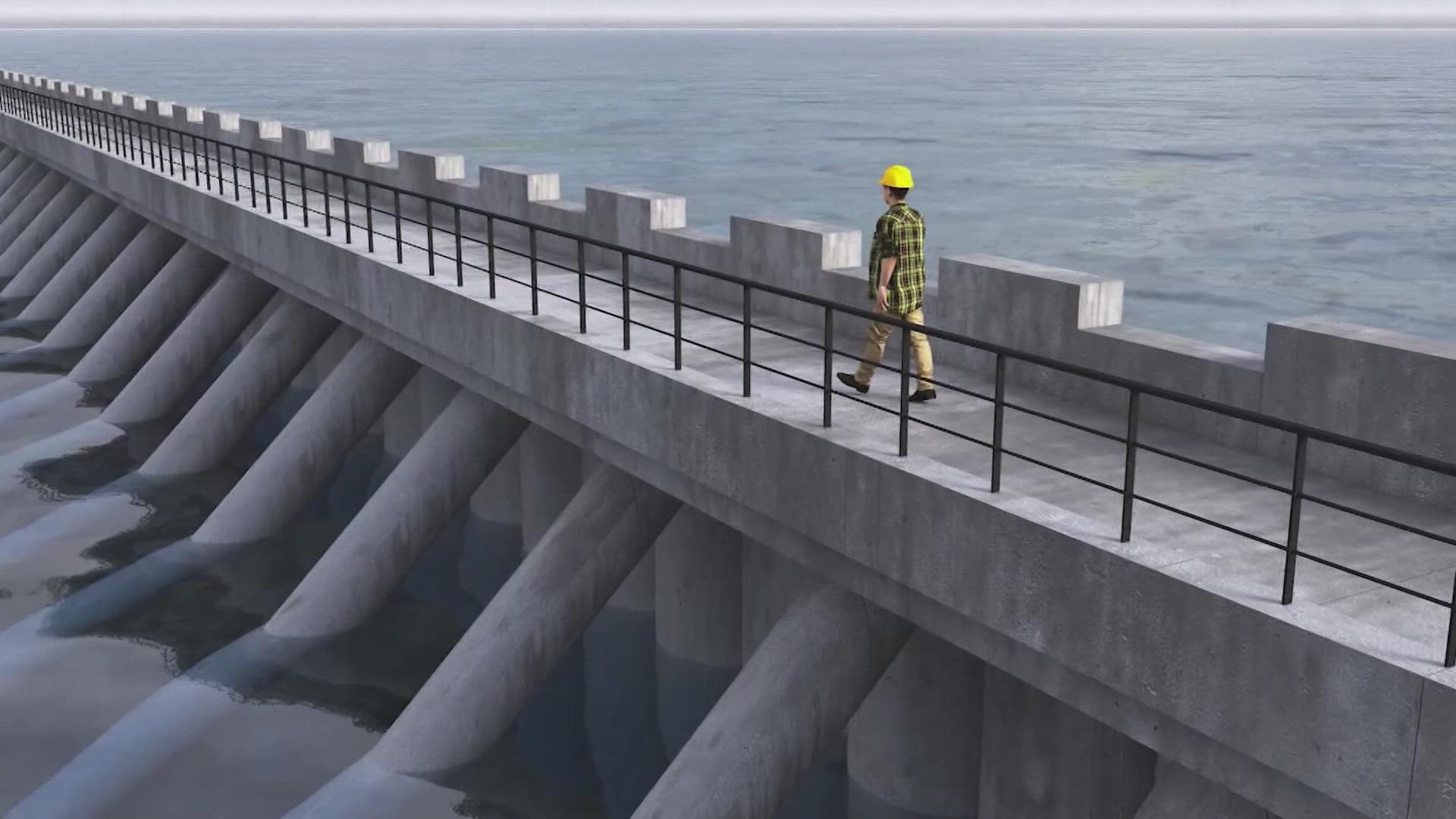HOUSTON — The Senate on Thursday approved the construction of the ‘Ike Dike,’ which would basically be a movable barrier that could be used like a flood gate.
It was a 92-2 bipartisan vote in favor of the Water Resources Development Act.
"It's been a long way to come, it's a big step," said Michel Bechtel, president of the Gulf Coast Protection District.
U.S. Senators John Cornyn (R) and Ted Cruz (R), as well as Congressman Randy Weber (R) introduced a standalone bill that would protect roughly 70 miles of the Texas coast from storm surge.
The $31 billion Ike Dike is a part of the Texas Coastal Project. Massive gates that open and close would be built along a 2.5-mile stretch between Galveston Island and Bolivar Peninsula. It would be the largest project ever undertaken by the U.S. Army Corps of Engineers.
"It's a no-brainer, it's something that needs to be done," said Bechtel.
It's just one part of a plan specifically designed to keep life-threatening surges from the nation's busiest port in Houston and the continent's largest petrochemical complex.
"Think of all the hurricanes and damage that we’ve heard over the years that have come in on the eastern shore of Galveston and Houston," said U.S. Sen. Shelley Moore Capito, a West Virginia Republican, before the vote. "This will help mitigate the impacts of future hurricanes and ensure critical port assets can continue to serve our country’s shipping and supply chain needs."
The damage from Hurricane Ike back in 2008 pointed out the need for this kind of protection, hence the name ‘Ike Dike.’
A 22-foot storm surge devastated our coastal communities.
The 'Ike Dike' is included in the Water Resources Development Act, which passed in the Senate by a 93-1 vote. Sen. Mike Braun (R) of Oklahoma was the only no vote, according to Texas Tribune. The U.S. House passed its version of the legislation in June. It now goes back to the House before being sent to President Biden.
Bechtel says the next hurdle is appropriations. 65% of the money will come from the federal government. The rest will be up to Texas to come up with.
"That's the mission, to come up with the 35% of the project, and we're working on that," said Bechtel.

